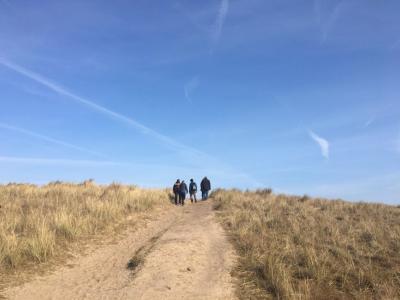Raising awareness
The main objective of this strand of the project was to raise awareness by educating coastal communities and stakeholders on dune resilience. As the people who work in dunes and live right behind them have the most to benefit from enhancing dune health, these communities are central and active participants in ENDURE.
Coastal dunes behave as a single system and are indifferent to political borders between countries. Climate change operates on a global scale and its impacts do not stop at national borders. Poor dune management or climate change adaptation measures taken in one country will influence others along a shared coastline. Our coastlines and our coastal processes are shared and this must be reflected in our ways of working. Cross-border cooperation is essential to ensure good dune management methods.
Across the other two project strands, ENDURE has explored how to improve adaptation to climate change in coastal dune systems. However, to fully realise the potential of new solutions, it is critical to provide education and training to complement this output. Without a campaign to stimulate awareness of the potential of nature-based solutions, the project is unlikely to lead to a more permanent shift to nature-based policies in the long term. The tools developed by ENDURE would then not be used beyond the life of the project.
This strand of the project launched 2 education campaigns specifically targeting relevant 2 Seas stakeholders. These consisted of coastal managers, decision makers including leadership, management teams and staff, but also of EU coastal communities who have the most to lose if dunes fail to adapt to climate change effects. These members of the public also have a say in coastal policies. An informed public puts greater pressure on decision makers, influencing long-term policy development.
This area of work was led by CPIE Val d'Authie, and worked with two audiences, coastal dune managers/decision makers and coastal communities.

